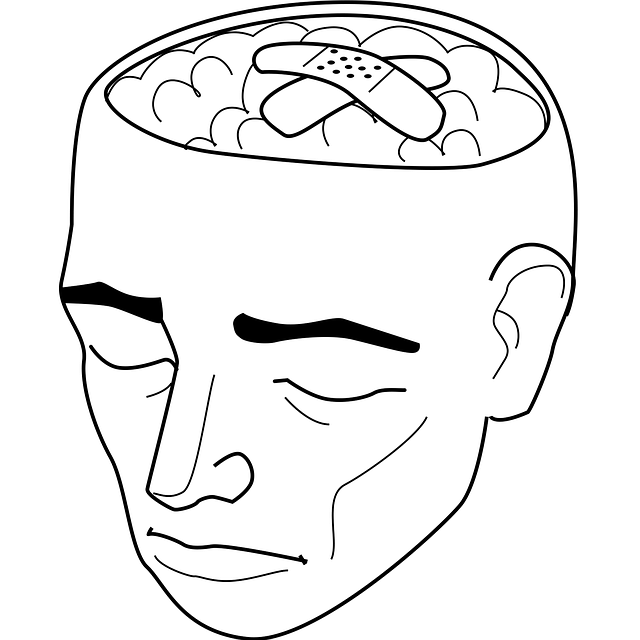Highlands Ranch Psychosis Therapy emphasizes crisis intervention strategies focused on stabilizing individuals during distress or psychosis. Through active listening, empathy, and evidence-based techniques like CBT and mindfulness practices, therapists build trust and encourage active participation. Public awareness campaigns reduce stigma, while community outreach educates residents on recognizing behavioral red flags early. Active involvement from families and integration of support networks enhance overall well-being, empowering individuals to manage stress and psychosis effectively.
In the realm of mental health support, crisis intervention strategies are vital in mitigating high-stress situations, especially in diverse communities like Highlands Ranch. This article delves into the cornerstone of crisis care, guiding professionals and families alike to navigate turbulent times. We explore identifying red flags, the power of active listening and empathy, evidence-based techniques from cognitive behavioral therapy to mindfulness, and building supportive networks leveraging community resources and collaborative care models. Understanding these strategies is key to providing effective Highlands Ranch psychosis therapy.
- Understanding Crisis Intervention: A Cornerstone of Mental Health Support in Highlands Ranch
- Identifying the Signs: Recognizing Behavioral Patterns and Red Flags for Effective Interventions
- The Role of Active Listening and Empathy in De-escalating High-Stress Situations
- Evidence-Based Techniques: From Cognitive Behavioral Therapy to Mindfulness Practices for Crisis Management
- Building a Supportive Network: Community Resources, Family Involvement, and Collaborative Care Models
Understanding Crisis Intervention: A Cornerstone of Mental Health Support in Highlands Ranch

In Highlands Ranch, crisis intervention strategies are a cornerstone of mental health support, providing crucial assistance during moments of intense distress or psychosis. These interventions aim to stabilize individuals, help them manage their emotions, and guide them towards recovery. Through effective communication strategies, therapists facilitate open dialogue, ensuring patients feel heard and understood. This empathetic approach forms the basis for building trust and encouraging active participation in therapy.
Beyond individual therapy sessions, public awareness campaigns play a vital role in fostering a supportive community. Educating residents about mental health challenges, including psychosis, reduces stigma and encourages early intervention. By integrating emotional regulation techniques into these campaigns, Highlands Ranch can empower individuals to recognize signs of distress and seek help promptly. Such proactive measures contribute significantly to the overall well-being of the community, ensuring that those facing crisis receive the necessary guidance and support.
Identifying the Signs: Recognizing Behavioral Patterns and Red Flags for Effective Interventions

Recognizing behavioral patterns and red flags is a crucial step in crisis intervention. At Highlands Ranch Psychosis Therapy, we understand that mental health crises can emerge from a variety of subtle cues. Pay attention to sudden changes in mood, behavior, or communication styles. Isolation from friends and family, increased irritability, or a decline in personal hygiene are common indicators.
Effective interventions rely on early identification. Our community outreach program implementation emphasizes education and awareness to help folks recognize these signs. By learning conflict resolution techniques and boosting confidence through support networks, individuals can better navigate stressful situations before they escalate. These proactive measures are key to preventing crises and promoting lasting well-being.
The Role of Active Listening and Empathy in De-escalating High-Stress Situations

In high-stress situations, active listening and empathy are powerful tools for crisis intervention. When individuals are experiencing intense emotions or facing a mental health crisis, such as psychosis in Highlands Ranch, effective communication can significantly de-escalate the scenario. Active listening involves giving your full attention to the speaker, paraphrasing their words, and validating their feelings without judgment. This process helps individuals feel heard, understood, and supported, which is crucial for calming down and fostering a sense of safety.
Empathy, on the other hand, goes beyond comprehension; it’s about connecting with the person’s emotions and perspective. Showing empathy in crisis intervention allows professionals to build trust and create a safe space for emotional healing processes. Incorporating mindfulness meditation techniques and mental health education programs design can further enhance these strategies. By teaching individuals skills to manage stress and promote self-awareness, they become better equipped to navigate challenging situations, ultimately contributing to improved overall mental well-being.
Evidence-Based Techniques: From Cognitive Behavioral Therapy to Mindfulness Practices for Crisis Management

In crisis intervention, evidence-based techniques play a pivotal role in effectively managing high-stress situations. Among the most widely recognized approaches are Cognitive Behavioral Therapy (CBT) and Mindfulness Practices. CBT helps individuals identify and challenge negative thought patterns, offering practical tools to manage acute distress. This therapeutic method has proven particularly effective for anxiety relief, a common symptom during crises. By teaching people to replace irrational thoughts with more realistic ones, CBT empowers them to regain control over their emotions and behaviors.
Mindfulness practices, on the other hand, cultivate present-moment awareness, enabling individuals to respond rather than react to crisis triggers. This involves focusing on breathing exercises, meditation, and non-judgmental acceptance of one’s experiences. High-quality Highlands Ranch psychosis therapy often incorporates mindfulness techniques to enhance emotional regulation and resilience. Furthermore, healthcare provider cultural competency training emphasizes the importance of tailoring these interventions to meet diverse client needs, while also ensuring appropriate risk assessment for mental health professionals.
Building a Supportive Network: Community Resources, Family Involvement, and Collaborative Care Models

Building a supportive network is a cornerstone of effective crisis intervention strategies. In Highlands Ranch psychosis therapy, this involves leveraging various community resources to create a safety net for individuals in distress. Community-based organizations often provide essential services such as emergency shelters, food banks, and job training programs that can address underlying social determinants of mental health. Engaging these resources ensures comprehensive care that extends beyond clinical settings.
Family involvement plays a pivotal role in crisis intervention. Including family members or caregivers in the support network fosters a collaborative care model, where everyone works together to understand and manage mental health challenges. This approach leverages the strength of familial bonds and can significantly enhance recovery outcomes. Additionally, integrating evidence-based practices like Social Skills Training and Mental Health Policy Analysis and Advocacy within this network empowers individuals to build inner strength and navigate life’s challenges more effectively.
In Highlands Ranch, crisis intervention strategies are vital tools in mental health support. By understanding the signs of a crisis, utilizing active listening and empathy, employing evidence-based techniques like Cognitive Behavioral Therapy and mindfulness practices, and fostering a supportive network through community resources, family involvement, and collaborative care models, professionals can effectively de-escalate high-stress situations. This comprehensive approach ensures that individuals in Highlands Ranch receive the best possible care during times of crisis, promoting recovery and well-being.














